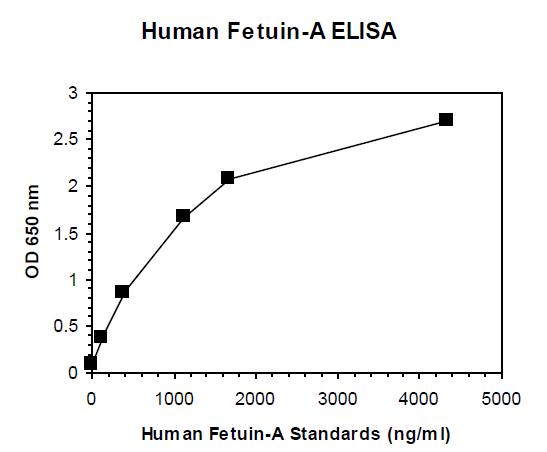Background
Fetuin-A, also known as alpha-2-HS glycoprotein, is a 59 kDa glycoprotein that consists of two amino-terminal cystatin domains and a smaller carboxy-terminal domain. It is synthesized by the liver and secreted into blood stream, where its concentration in adult mammals ranges from 0.5 – 1.0 g/L. Fetuin-A occurs with high concentration in serum during fetal life and is involved in protease inhibitory activities and development-associated regulation of calcium metabolism and osteogenesis. It accumulates in bones and teeth as a major fraction of noncollagenous bone proteins. Biological studies have demonstrated that fetuin-A is the major calcification inhibitor found in circulation, where it interferes with calcium salt precipitation.
Recent studies have indicated that fetuin-A levels drop in uremic patients on hemodialysis in comparison to normal healthy controls. The low fetuin-A level in patients with chronic kidney failure strongly associates with higher cardiovascular mortality. On the other hand, it has been demonstrated that a higher than normal serum fetuin-A in an older population is associated with diabetes, which is independent from other markers of insulin resistance. Furthermore, a higher fetuin-A level may be an independent risk marker of patients with cardiovascular diseases.

